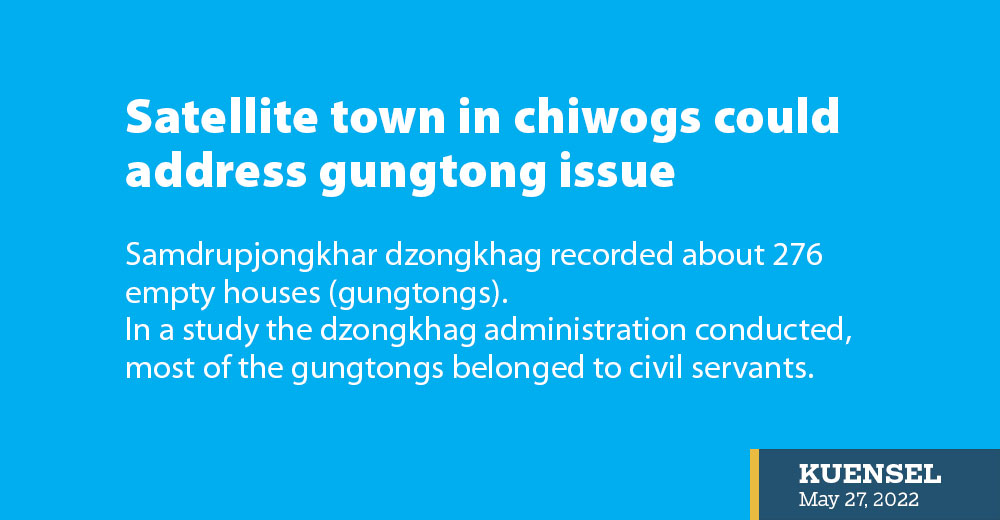Kelzang Wangchuk | Samdrupjongkhar
Samdrupjongkhar dzongkhag recorded about 276 empty houses (gungtongs).
In a study the dzongkhag administration conducted, most of the gungtongs belonged to civil servants.
The report stated that 21.5 percent of gungtongs belonged to civil servants, and 44.2 percent to dependants, who left the villages to live with their husbands, wives or children.
It also stated that 8.7 percent of empty houses belonged to armed forces, 1.1 percent to corporate employees, 2.3 percent to people who settled elsewhere, 7.2 percent to private employees.
Of the 11 gewogs, Lauri gewog has the highest gungtongs with 98 empty houses followed by Gomdar gewog with 73 houses. Samrang gewog has no gungtong.
Langchenphu gewog has 37 gungtong, Dewathang and Phuentshothang gewogs have three each, Martsala and Wangphu gewogs have six each, there are 12 gungtong in Orong gewog, Pemathang gewog has 10 while there are 28 gungtong in Serthi gewog.
Samdrupjongkhar dzongrab, Pema Dorji, said more houses became empty since 2012.
He claimed that people did not leave the villages because of lack of basic facilities or amenities in their villages as all villages have farm road and electricity.
The dzongrab, however, said Lauri gewog has the highest gungtong in the dzongkhag and people might have left because of lack of facilities as the gewog was connected with motorable road only in 2016.
“Since most of the people in the gewog are lay-monks, it also contributes to the highest gungtong in the gewog because they spend their time in meditation keeping their houses empty,” he said.
The dzongrab said that the dzongkhag has 128 farm roads covering about 614.55 kilometres, about 81 functional irrigation canals, and 100 percent electricity coverage.
He said the dzongkhag also carried out various agricultural programmes in the current plan in the gewogs. “But the gungtong issues would remain the same because people go for better opportunities.”
He said the dzongkhag and gewogs would work on improving the facilities such as farm roads in the next plan, adding that the gewogs would discuss with the parents and tell their unemployed children to come back home. “But the government should also intervene and support them.”
Dzongrab Pema Dorji said there is also a need for at least one satellite town in the chiwog level to address the gungtong issue.


